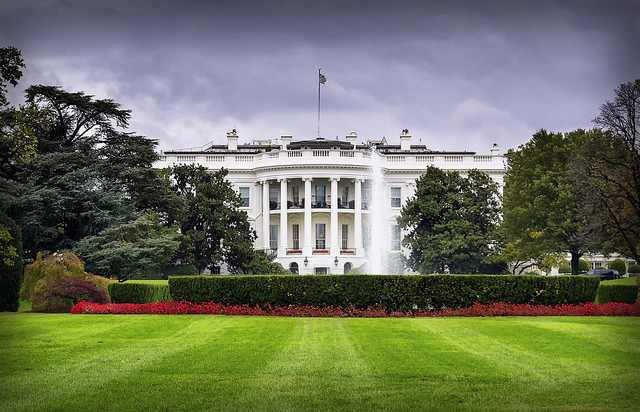Supreme Court Dismisses One of Two Travel Ban Cases
On October 10, 2017, in a one-page order, the U.S. Supreme Court dismissed the Maryland case, Trump, President of U.S., Et Al. v. Int’l Refugee Assistance, Et Al., which sought to block a key provision of Executive Order No. 13,780 temporarily suspending the entry of aliens outlined under Section 2(c). The Supreme Court has dismissed the case because the provision at issue expired on September 24, 2017 and no longer presents a “live case or controversy” for the court to resolve. Accordingly, the Supreme Court vacated the judgment and sent the case back to the lower courts to dismiss the case as moot.
However, the Supreme Court did not act to remove the case, Trump, President of U.S., Et Al. v. Hawaii, Et Al., from its docket, in which the state of Hawaii joined by other states, called on the court to issue an injunction, stopping the federal government from enforcing a travel ban on individuals from six Muslim majority countries as well as refugees. The travel ban at issue, in that case, began on June 29, 2017 and expired on September 27, 2017. The refugee provision of the act however will not expire until October 24, 2017. Given the Supreme Court’s dismissal of the Maryland case, it is likely that the Court will also dismiss the Hawaii case once the refugee provision has expired.
On September 24, 2017, the President revised Executive Order No. 13,780 for a third time adding Chad, North Korea, and Venezuela to its travel ban, and removing Sudan. The third revision of the travel ban will go into effect on October 18, 2017. The Supreme Court did not address the administration’s newly revised travel ban in its order.
The White House Unveils Conditions in Deal to Protect Dreamers
On October 8, 2017, the White House released a list of priorities to be used as bargaining chips in exchange for the government’s support on any deal to protect Dreamers from deportation. White House legislative director Marc Short stated, “these priorities are essential to mitigate the legal and economic consequences of any grant of status to DACA recipients. They fulfill the President’s promise to advance immigration reform that puts the needs of American workers first.”
The list echoes the President’s hard line stance on immigration and his calls to tighten immigration and border enforcement, crack down on illegal immigration, sanctuary cities, and cut back on legal immigration by restricting family based immigration and overhauling the current employment-based immigration system. Republicans in Congress will certainly need Democratic support to break a filibuster to pass any such legislation. The long list of demands from the White House will certainly make the job all the more difficult, especially if the Republicans are unwilling to make such concessions.
Among the long list of demands are the following:
- The construction of a border wall along the Southern border of the United States, ensuring funding for the southern border wall
- Identifying and eliminating any loopholes that allow unaccompanied children from being removed from the United states. The administration proposes amending current law to ensure the expeditious return of unaccompanied children and family units
- Tightening and eliminating any loopholes in the asylum system including elevating the threshold standard of proof in credible fear interview, ensuring only appropriate use of parole authority, prevent aliens who have been granted asylum or entered as refugees from obtaining permanent residency if convicted of an aggravated felony
- Expanding Statutory Grounds for Inadmissibility: The administration proposes expanding the criteria that render aliens inadmissible and ensure aliens are maintained in continuous custody until their removal
- Expedited Removal: Expanding the grounds of removability and categories of alien’s subject to expedited removal
- Sanctuary Cities: Blocking sanctuary cities from receiving federal funding who fail to cooperate with federal immigration officials in their enforcement priorities
- Enhancing state and local cooperation with federal immigration law enforcement to investigate, arrest, detain, or transfer to federal custody aliens for purposes of enforcing federal immigration laws
- Visa Overstays: Strengthening the removal processes for individuals who have overstayed their visas or violating the terms of their visas by classifying such conduct as a misdemeanor, bar all visa overstays from immigration benefits for a certain period of time, permit the Department of State to review the criminal background of foreign diplomats or government officials contained in the National Crime Information Center database before visa adjudication, regardless of whether the applicant’s fingerprints are in the database.
- Merit-Based Immigration: The Administration proposes establishing a merit-based immigration system that protects U.S. workers and taxpayers, and ending chain migration, to promote financial success and assimilation for newcomers.
- End extended-family chain migration by limiting family-based green cards to spouses and minor children and replace it with a merit-based system that prioritizes skills and economic contributions over family connections.
- Establish a new, points-based system for the awarding of Green Cards (lawful permanent residents) based on factors that allow individuals to successfully assimilate and support themselves financially.
- Eliminate the “Diversity Visa Lottery.”
- Limit the number of refugees to prevent abuse of the generous U.S. Refugee Admissions Program and allow for effective assimilation of admitted refugees into the fabric of our society
To read the complete list of demands please click here.
 Visa Lawyer Blog
Visa Lawyer Blog




